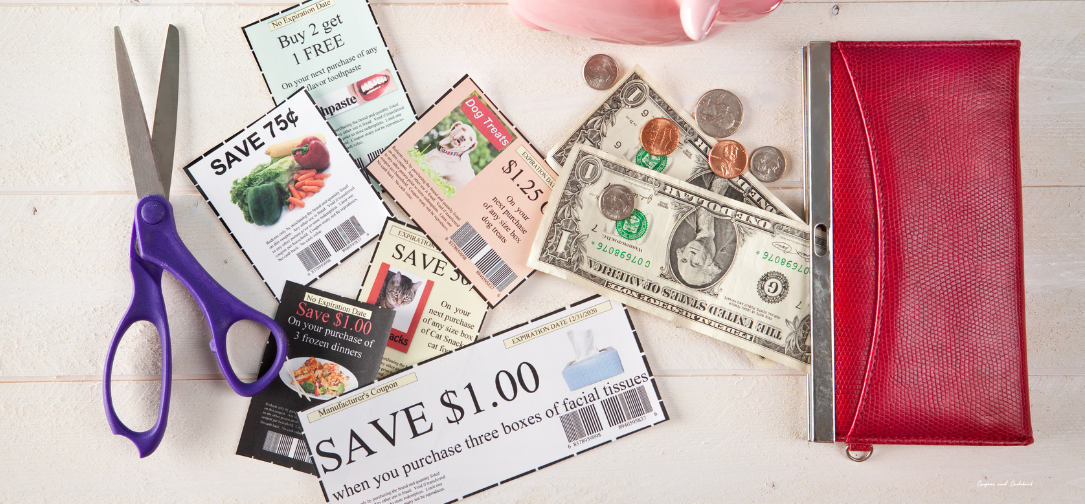Finance
How to Save Money Fast: 20 Practical Tips to Boost Your Savings in Just 30 Days

The ability to save money quickly has become an essential skill in today’s fast-paced world, where expenses seem to mount faster than ever. Whether you’re aiming to build an emergency fund, save for a big purchase, or just create a financial buffer, there are effective strategies to accelerate your savings. This article will explore 20 practical tips that can significantly boost your savings in just 30 days.
1) Create a Budget and Stick to It
The foundation of any successful savings plan starts with budgeting. A budget helps you understand where your money goes, allowing you to make informed decisions about your spending. Begin by tracking your income and expenses for a month to identify areas where you can cut back. Use budgeting apps like Mint, YNAB, or even a simple spreadsheet to categorize your expenses and set realistic spending limits.
2) Automate Your Savings
One of the easiest ways to save money is to automate the process. Set up an automatic transfer from your checking account to your savings account each time you get paid. By doing this, you prioritize saving before you even have a chance to spend. Even a small automatic transfer, like $50 or $100 per paycheck, can add up quickly over time.
3) Cut Down on Non-Essential Subscriptions
In the age of digital services, it’s easy to accumulate multiple subscriptions—from streaming services to fitness apps, music subscriptions, and more. Review your monthly subscriptions and cancel any that you don’t use regularly or that you can live without. This small adjustment can free up significant funds that can be redirected into your savings.
4) Limit Eating Out and Opt for Home-Cooked Meals
Dining out is convenient but often comes with a hefty price tag. Cooking at home not only saves money but also gives you control over your diet. Plan your meals for the week, make a grocery list, and stick to it. Cooking in bulk and utilizing leftovers for meals can further reduce your food expenses.
5) Implement a No-Spend Challenge
Challenge yourself to go a certain period—like a week or even a full month—without spending money on anything non-essential. This exercise forces you to evaluate your spending habits and can result in significant savings. Instead of spending, focus on free or low-cost activities like hiking, reading, or DIY projects.
6) Utilize Coupons and Cashback Apps
Coupons and cashback apps can help you save money on everyday purchases. Apps like Rakuten, Ibotta, and Honey can provide cashback or discounts when you shop online or in-store. Additionally, many grocery stores offer digital coupons that can be loaded directly onto your loyalty card.

7) Sell Unused Items
Take inventory of your home and identify items that you no longer need or use. Selling these items on platforms like eBay, Craigslist, or Facebook Marketplace can generate extra cash quickly. Decluttering not only helps you save money by selling items but also prevents you from buying duplicates in the future.
8) Reduce Utility Bills
Energy costs can be a significant part of your monthly expenses. Simple actions like turning off lights when not in use, unplugging electronics, using energy-efficient bulbs, and adjusting your thermostat can lower your utility bills. Consider installing a programmable thermostat to save on heating and cooling costs, and always be mindful of water usage to avoid unnecessary expenses.
9) Review and Adjust Your Insurance Policies
Insurance is necessary, but that doesn’t mean you should overpay. Review your car, home, and health insurance policies to ensure you’re getting the best rate. Shop around for better deals or negotiate with your current provider for a lower premium. Sometimes bundling multiple policies with the same provider can result in discounts.
10) Negotiate Your Bills
Many people don’t realize that some bills are negotiable. Contact your service providers for cable, internet, and even credit cards to see if there’s a way to reduce your monthly costs. Often, simply asking for a discount or threatening to switch providers can result in savings. Additionally, consider downgrading your service plans if you’re not using all the features.
11) Avoid Impulse Purchases
Impulse buying can quickly derail your savings goals. To combat this, implement the 30-day rule: if you find something you want to buy, wait 30 days before purchasing it. Often, the initial urge to buy fades, and you may find that you don’t need the item after all. For smaller purchases, consider waiting 24 hours to see if the impulse passes.
12) Use Public Transportation or Carpool
If you’re used to driving everywhere, consider using public transportation or carpooling to save on gas, parking, and vehicle maintenance costs. Depending on where you live, public transportation might be a more cost-effective and environmentally friendly option. Carpooling with coworkers or friends is another way to cut down on commuting expenses.
13) Plan and Limit Grocery Shopping
Grocery shopping without a plan can lead to overspending. Create a meal plan for the week and make a detailed shopping list before heading to the store. Stick to the list to avoid purchasing unnecessary items. Buying in bulk, using store brands, and taking advantage of sales can also reduce your grocery bill.
14) Refinance Loans or Pay Off High-Interest Debt
High-interest debt, such as credit card balances, can eat away at your income. If possible, pay off these debts as quickly as you can. Consider consolidating your debt into a lower-interest loan or refinancing existing loans to reduce the interest rate. The money saved on interest can be redirected to your savings.
15) Embrace DIY and Repair Instead of Replace
Before rushing to replace items that are broken or worn out, consider repairing them. Whether it’s clothing, appliances, or furniture, repairing instead of replacing can save a significant amount of money. The internet is full of tutorials and resources that can help you fix almost anything.
16) Reduce Entertainment Expenses
Entertainment can be a significant drain on your finances, but there are plenty of ways to have fun without spending a lot of money. Instead of going to the movies, host a movie night at home. Look for free or low-cost local events, such as concerts in the park, community festivals, or art shows. Utilize your local library for free books, movies, and even digital media.
17) Delay Major Purchases
If you’re thinking about making a major purchase, consider delaying it until you’ve reached your savings goal. This could include things like buying a new car, upgrading your phone, or going on a vacation. Delaying these purchases not only gives you more time to save but also allows you to reconsider if they’re truly necessary.
18) Set Specific Savings Goals
Having a clear, specific goal can make saving money more motivating. Whether it’s saving for a vacation, a new gadget, or an emergency fund, knowing exactly what you’re saving for can help you stay on track. Break down your goal into smaller, achievable milestones and celebrate each time you reach one.

19) Shop Secondhand
Before buying something new, check out secondhand stores, online marketplaces, or even garage sales. Many items, from clothing to furniture, can be found in excellent condition at a fraction of the cost. Shopping secondhand not only saves money but also reduces waste, making it an environmentally friendly option.
20) Track Your Progress and Adjust as Needed
As you implement these tips, it’s essential to track your progress. Regularly reviewing your budget and savings can help you stay motivated and make adjustments if necessary. If you find that you’re not saving as much as you’d like, revisit your expenses to identify new areas where you can cut back.
Conclusion
Saving money quickly doesn’t require drastic lifestyle changes, but rather a series of thoughtful and intentional decisions. By implementing these 20 practical tips, you can start to see a significant increase in your savings in just 30 days. Remember, the key to successful saving is consistency. Even small changes, when sustained over time, can lead to substantial financial growth. Whether you’re saving for something specific or simply looking to improve your financial health, these strategies can help you achieve your goals and build a more secure future.
-

 Press Release3 days ago
Press Release3 days agoClinical Trials Market Set for Robust Growth, Driven by Drug Development Surge and Digital Innovation
-

 Press Release6 days ago
Press Release6 days agoBellarium ($BEL) Price Prediction: Could It Hit $5 by 2026?
-

 Business5 days ago
Business5 days agoHow Managed IT Solutions Help Small Teams Compete at Enterprise Scale
-

 Press Release4 days ago
Press Release4 days agoIndustrial Boiler Market Expected to Surpass USD 24.4 Billion by 2035 Amid Growing Demand for Energy Efficiency and Industrialization
-

 Press Release4 days ago
Press Release4 days agoFill-Finish Pharmaceutical Contract Manufacturing Market Expected to Flourish Amid Biopharmaceutical Boom and Global Outsourcing Trend by 2035
-

 Press Release4 days ago
Press Release4 days agoPreventive Vaccines Market to Witness Strong Growth by 2035
-

 Press Release4 days ago
Press Release4 days agoGreen Bio Chemicals Market Poised for Sustainable Growth amidst Global Shift to Eco-Friendly Alternatives by 2035
-

 Press Release4 days ago
Press Release4 days agoPet Food Nutraceutical Market Set for Robust Expansion Amid Rising Demand for Pet Wellness by 2035




























